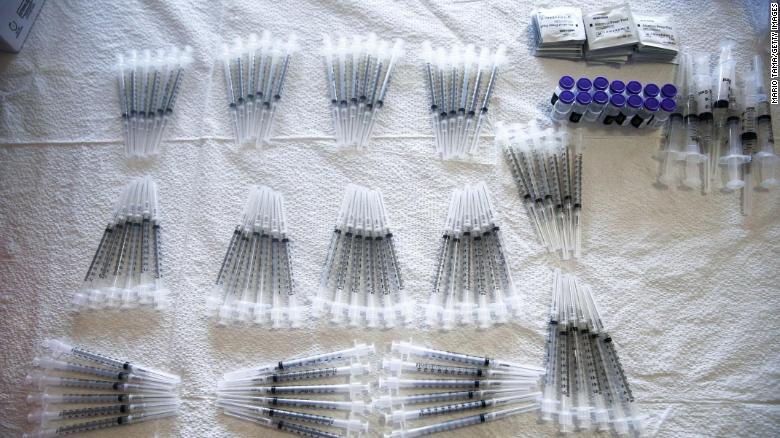The United States is likely to have around 300 million leftover covid-19 vaccines by the end of July, experts in health policy from Duke University estimated in a report Thursday, who asked the country to share the doses in a way. more generalized to address the great inequality in the global distribution of vaccines.
The US has provided limited shipments of the AstraZeneca vaccine, which is not yet licensed for use in the United States, to Mexico and Canada, but US Secretary of State Antony Blinken has said he will not share the injections on a regular basis. more widespread until the country is “more secure” about its own supplies.
The United States is the largest donor to the global Covax vaccine delivery program, but it has been adamant about the vaccines it currently has in large numbers, while many others have none. Three-quarters of the vaccines that have actually been administered in the world have corresponded to just 10 nations, which together represent less than half of the world’s population.
“The richest nations in the world account for much of the short-term supply. At the current rate of vaccine delivery, 92 of the world’s poorest countries will not vaccinate 60% of their population until 2023 or even later, ”wrote Drs. Krishna Udayakumar and Mark McClellan, Duke health experts.
The pandemic, the central theme of the World Economic Forum 4:05The report sets out a three-part plan in which the United States should increase Covax funding, make excess doses available through the same plan, and create bilateral programs modeled after the President’s Emergency Plan for Relief from Covax. AIDS (PEPFAR) to provide vaccines and support to countries in need. It could also provide the support and materials for countries to produce safe and effective vaccines themselves.
The AstraZeneca vaccine, shared by the US, has been discontinued in many age groups in Europe after regulators said it was possibly linked to dozens of rare but serious blood clotting events, some of them fatal. Johnson & Johnson’s vaccine was suspended in the United States on Tuesday after the same rare clotting event was reported in six people. The incidence remains extremely rare, around one in a million.
Duke University estimates of over 300 million doses assumed that the United States would use the J&J vaccine, but given the disruption, their projections may be overstated. However, this will not change the big picture, as the J&J vaccine currently represents less than 5% of the 190 million vaccines currently in the United States.

